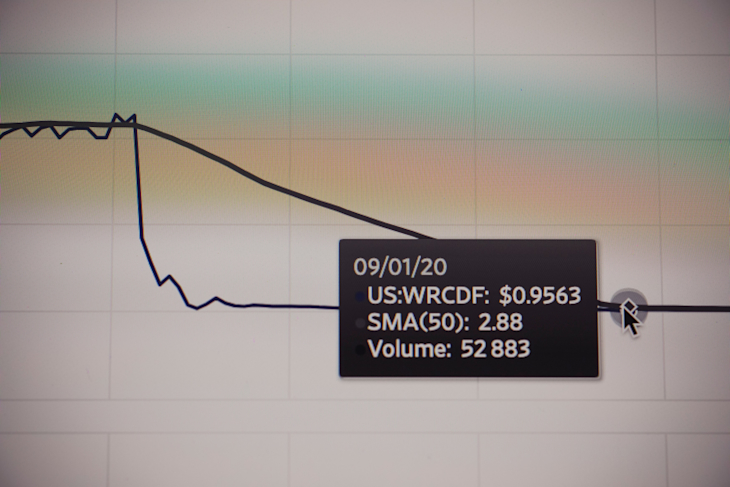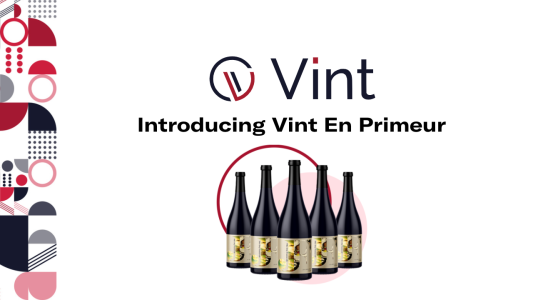A Simple & Easy Guide On Wine Exchanges
If you are interested in buying or selling fine wine, you now have more options. You can invest in collections through a platform like Vint or go the traditional route of trading at wine auctions. You can hire a broker to sell your wine or handle it yourself independently or through sites like eBay.
Another option that more and more wine lovers are using is wine exchanges, platforms that allow you to trade fine wines worldwide. There are certainly perks to buying and selling through exchanges, but you will want to choose the best platform for your needs if you want your efforts to be worthwhile. Let’s talk about wine exchanges in more detail and help you pick the right platform!
What Are Wine Exchanges?
When you hear the term “wine exchange,” you may think of those fun parties where everyone swaps different wines. But today, there is a different kind of wine exchange rising in popularity.
A modern wine exchange is an online marketplace where peers purchase and sell wine to each other. You can trade wine from all regions in the world through these platforms, including Napa Valley, Bordeaux, Colchagua Valley, Willamette Valley, Paso Robles, and more.
Wine exchanges allow you to buy and sell with private individuals, wine funds, syndicated groups, etc. And they don’t require you to use auction houses, brokers, merchants, or other channels.
What Are the Top Wine Exchanges?
If you want to get the most from your wine trading, choosing the appropriate exchange for your needs is essential. There are several worth considering. Let’s take a look at a few of the most popular ones:
Liv-ex
Liv-ex is a fine wine market that prides itself on catering to its largest pool of reputable merchants. More than 560 trusted merchants operate in the Liv-ex network, and it is widely considered to be the most active and liquid fine wine trading platform.
The company has operated for 20 years and provides secure and consistent delivery and payments. There is more than $100 million of wine available to trade at any given moment and more than $40 million of stock.
Liv-ex provides wines from more than 20,000 active markets covering virtually every wine region globally. In other words, you will have a lot of choices by going with this platform. It’s also quite easy and fast to sell wine through Liv-ex, and you can list anonymously.
This platform uses standardized contracts, so you know what to expect throughout the process. For example, you can choose a contract that ensures your wine arrives in perfect condition within two weeks and in bond. If you want photos, you can request those too.
Bordeaux Index LiveTrade
LiveTrade by Bordeaux Index (BI) is another popular wine exchange platform. It quotes prices to users for which it will purchase and sell each wine. Since the quotes are firm, LiveTrade users can rely on consistency and the fact that prices are constantly updated for every wine listed on the platform. That is, you will not see a listed wine without a price clearly stated.
As soon as you buy or sell a specific wine, the trade will be confirmed immediately, and you will owe or receive the precise price you agreed to. The prices are all-inclusive, and you won’t be hit with any additional commissions or adjustments.
One of the most desirable features of live trade is that anyone can use it. Bordeaux Index does not require you to store wines in its facilities to trade on the platform. You must keep all wines in pristine condition in a dedicated storage facility in a UK or EU tax warehouse.
The checkout process is relatively painless on LiveTrade. You can always see the best current prices through the platform’s standard individual wine pages, which allow you to immediately trade by simply adding wine to your cart to sell or purchase. Then, you will check out as you would from any other website.
CaveX
CaveX was founded in 2013 as a marketplace where traders, wine funds, and private clients can exchange fine wines in a live market environment. As a CaveX member, you will have access to modern technology that helps you purchase and sell all types of wine in a single marketplace. This platform also allows you to establish your prices, which can help you maximize your returns if used wisely.
CaveX charges a 3% commission rate, which is lower than other platforms. Lower barriers allow wine traders more inventory to choose from, and exchanging is more cost-effective. The free and fully automated portfolio management system will let you manage your wine collection and trade them in a central marketplace, even if your wines are stored in various warehouses.
To trade on the CaveX platform, you must store your wines in UK bonded warehouses. You can purchase wines that CaveX will then deliver to your storage facility or sell wines and have them delivered to the buyer’s storage provider.
You can still exchange wine on the CaveX platform if you don’t reside in the UK. The only caveat is that you must purchase solely to export through a nominated shipper or that you maintain a registered UK bonded account.
Why Use a Wine Exchange?
- Lower commissions
- Quick commissions
- Quick transactions
- Convenience
So, you may be wondering about the benefits of using wine exchanges. Here are a few ways wine exchanges can improve your wallet and life:
Lower Commissions
Most wineries and auction houses charge 10% or higher commission rates, while wine exchanges typically charge much less. You will pay 3% or less in commission with most platforms, meaning more money in your pocket.
Quick Transactions
The best wine exchanges will allow you to make instant purchases or sales of wine from the platform. These platforms provide detailed and up-to-date prices, market news, and other content to go with top-notch portfolio management features. All this adds up to fast transactions from a simple interface.
Convenience
You don’t have to leave your home or desk to trade bottles of fine wine securely when you use a wine exchange platform. The platforms above go to great lengths to ensure security for all members and value transparency.
You can also easily manage your portfolio without assistance, and you can choose for yourself when to purchase or sell wine. In other words, it’s very convenient.
Why Not Use a Wine Exchange?
- Storage issues
- Lack of access to wine futures
Let’s take a quick look at the drawbacks of going through wine exchanges:
Storage Issues
Not all wine exchanges provide storage for trades. Depending on the platform you use and the location of the wine, you may be responsible for storing the wine yourself. You would need to create a personal wine cellar with appropriate climate control and a suitable location (unless you keep your wine in a bonded warehouse).
With that said, specific wine exchanges do provide storage. It’s essential to factor this feature in before choosing a platform.
Lack of Access to Wine Futures
“En primeur” investing means purchasing fine wine before it is bottled. Another term for this is “wine futures.”
Most wine exchanges do not let members invest in wine futures, so you will need to consider that in your decision. The pros outweigh the cons if you have a knack for trading and a passion for fine wine!
How Do You Trade On a Wine Exchange?
- Gauge your eligibility
- Sift through the pros and cons
When trading on a wine exchange, you can barter with other buyers and sellers through an online marketplace. One of the best places for doing transactions through wine exchanges is that you can connect with people across the globe without having to deal with a middleman.
Plus, trading on a wine exchange is considered one of the most liquid purchasing methods and selling fine wine. Here are a couple of quick tips for getting started:
Gauge Your Eligibility
Most wine exchanges market themselves as being accessible to all investors. The truth is, there are barriers to trading on these platforms. This is a pro and a con. It’s good because you can rest assured that you are dealing with respectable, legitimate buyers and sellers anytime you undergo a trade.
However, there are certain caveats to trading on wine exchanges. The key is to research any platform you consider to confirm that you qualify for trading.
Sift Through the Pros and Cons
Once you have confirmed your eligibility, it’s important to refresh yourself on the pros and cons of using wine exchanges. For example, look for a platform that allows you to trade anonymously, providing extra security.
Also, understand that a level of restrictions when joining an exchange is a good thing because it provides more security to all members. Furthermore, going through a wine exchange can provide opportunities for faster and more profitable sales than some other fine wine trading options.
As discussed, restrictions and requirements can help ensure that a wine exchange is safe and can provide genuine opportunities for members. But you must factor in any membership fees, commissions, or any other costs that can cut into your profit from your sales.
Also, if you do not have a private seller, you may not be eligible to trade on specific exchanges. Some platforms require you to be an improved wine merchant or pay for storage at a bonded warehouse. You may need to purchase insurance as well.
Moreover, it’s essential to look out for hidden costs before joining any online wine exchange; most platforms are transparent, but you will still want to do your due diligence before trading. If you are a beginner wine seller, you may need to spend a significant amount of time researching to ensure you make the best deals possible for yourself.
Other Ways to Purchase and Sell Wine
Trading on wine exchanges can be an excellent way to make money doing something you enjoy. Just weigh the pros and cons and research any platform you consider signing up for.
If you are more interested in a long-term investing strategy, consider using Vint. Our fully transparent platform allows investors with any level of experience to purchase SEC-qualified shares of the world’s finest wines. We regularly update our prices and other data on our collections to make transactions as easy as possible.
Sources: Cellars 101: How To Sell Your Wine at Auction | Wine Spectator How To Build a Wine Cellar in Your Basement | This Old House Buying En Primeur Wines: How To Approach It | Decanter


